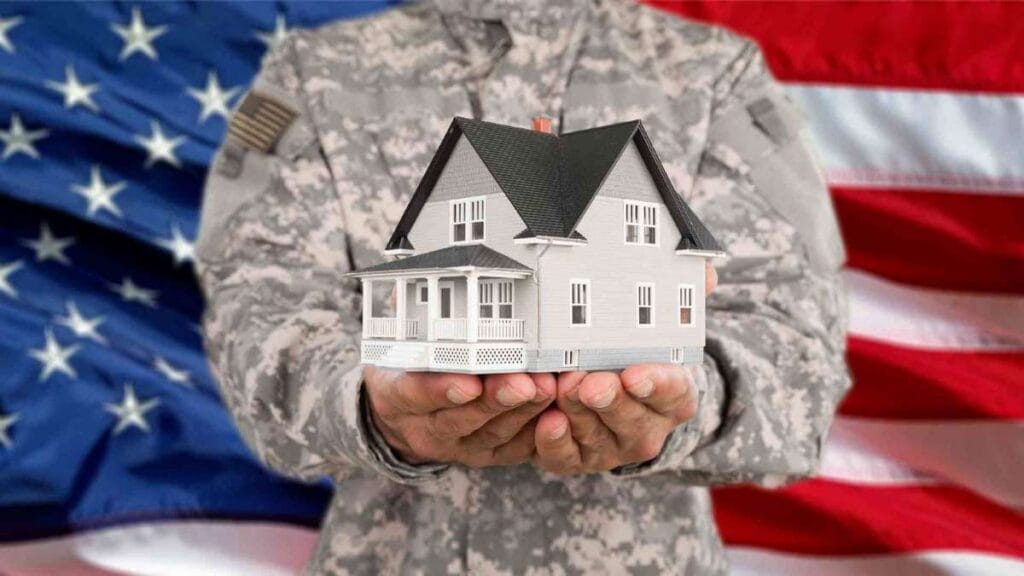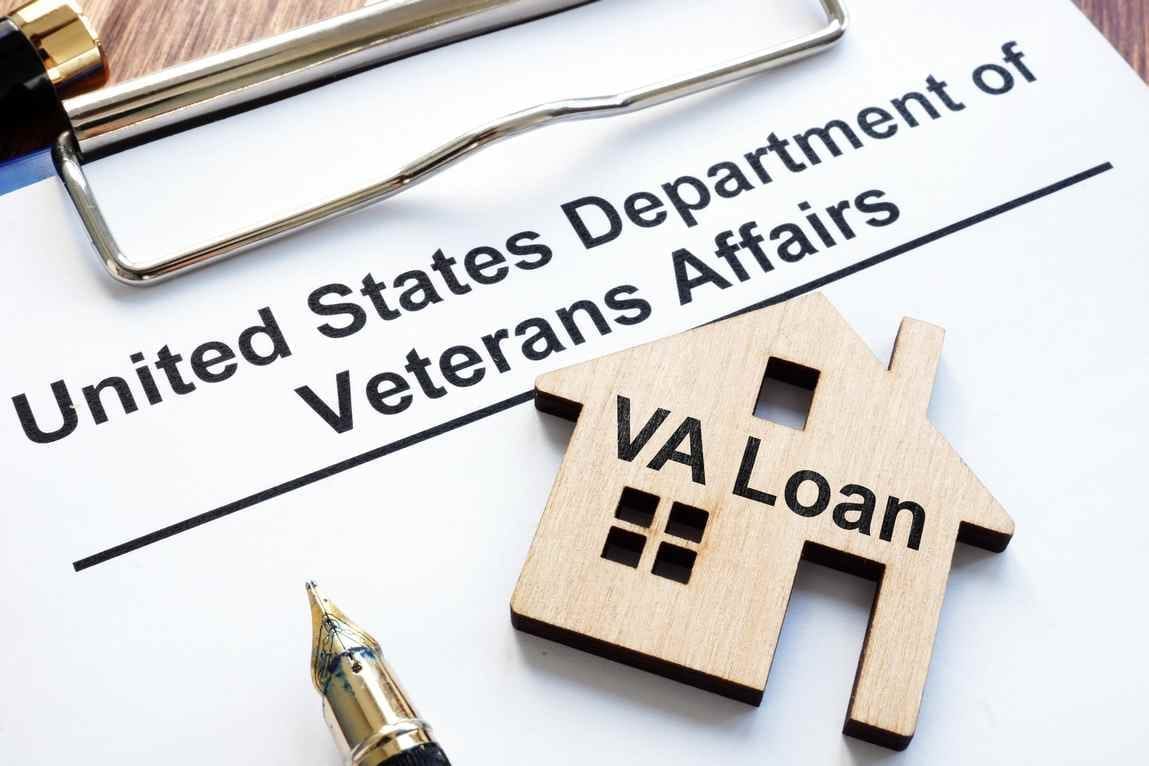What is a VA Loan? In the grand arena of home financing, the VA loan stands as a stalwart sentinel for veterans and service members. But what exactly is this coveted financial tool, and why should it be on your radar? Let’s embark on a journey through the labyrinth of VA loans, demystifying this intriguing beast and revealing its secrets.
History of VA Loans
The Birth of the VA Loan Program
Picture it: 1944, the end of World War II, and the U.S. introduces the Servicemen’s Readjustment Act, commonly known as the GI Bill. This act introduced the VA loan program with a mission to provide veterans with affordable home financing and bolster the American Dream.
Evolution of VA Loans Over the Decades
The VA loan program has transformed dramatically over the decades. From its humble beginnings to its modern form, the program has expanded its benefits and eligibility criteria, adapting to the needs of veterans and the real estate market.

What is a VA Loan?
Defining the VA Loan
A VA loan is a mortgage backed by the U.S. Department of Veterans Affairs, designed to help veterans and active-duty service members purchase or refinance a home. The VA guarantees a portion of the loan, making it easier for borrowers to secure favorable terms.
How VA Loans Differ from Conventional Loans
VA loans differ significantly from conventional loans. They often require no down payment and no private mortgage insurance (PMI), offering terms that can be more favorable than those of conventional loans.
Who is Eligible for a VA Loan?
Service Requirements: Active Duty and Veterans
Eligibility for a VA loan is reserved for active duty members, veterans, and certain reserve components. Typically, you need to have served 90 days of active duty during wartime or 181 days during peacetime.
Surviving Spouses: Eligibility and Benefits
Widows and widowers of service members may also be eligible for VA loans, depending on the veteran’s service record and whether the death was service-related.
Types of VA Loans
Purchase Loans: Buying Your Dream Home
The VA purchase loan is designed to help veterans buy a home with no down payment and competitive interest rates, making homeownership more accessible.
Cash-Out Refinance: Tapping Into Home Equity
The cash-out refinance option allows you to convert your home’s equity into cash, which can be used for various purposes, including home improvements or debt consolidation.
Interest Rate Reduction Refinance Loan (IRRRL)
The IRRRL, or streamline refinance, allows veterans to refinance their existing VA loans to secure a lower interest rate, potentially saving thousands over the life of the loan.
Native American Direct Loan (NADL) Program
The NADL program provides VA loan benefits to Native American veterans for purchasing, building, or improving homes on tribal lands, offering the same zero-down benefit as other VA loans.
Benefits of VA Loans
Zero Down Payment: Myth or Reality?
One of the most attractive benefits of VA loans is the zero down payment requirement, allowing many veterans to purchase a home without a substantial initial investment.
No Private Mortgage Insurance (PMI): Saving You Money
VA loans eliminate the need for private mortgage insurance (PMI), saving you potentially hundreds of dollars per month compared to conventional loans.
Competitive Interest Rates: What’s the Deal?
VA loans generally offer lower interest rates than conventional loans, leading to significant savings over the life of your mortgage.
How to Apply for a VA Loan
The Step-by-Step Application Process
Applying for a VA loan involves several steps, including getting pre-approved, gathering necessary documentation, and working with a lender to complete the application process.
Required Documentation: Don’t Forget These Papers
Ensure you have all necessary documentation, including your Certificate of Eligibility (COE), proof of income, and credit history, before starting the application.
The Role of the Certificate of Eligibility (COE)
The COE verifies your eligibility for a VA loan and is essential for accessing the benefits. Obtain it early in the process to streamline your application.
VA Loan Limits
Understanding Loan Limits: How Much Can You Borrow?
VA loan limits determine the maximum amount you can borrow without a down payment. These limits vary based on location and housing market conditions.
Changes in Loan Limits Over the Years
VA loan limits have evolved over time to reflect changes in housing markets and economic conditions. Stay updated on these limits to understand how they affect your borrowing capacity.
VA Loan Rates
Factors Influencing VA Loan Rates
VA loan interest rates can fluctuate based on market conditions, lender policies, and your credit profile.
Comparing VA Loan Rates to Conventional Loan Rates
VA loan rates are often lower than conventional loan rates due to the government backing, offering better terms for eligible borrowers.
Fees Associated with VA Loans
The VA Funding Fee: What Is It and How Much?
The VA funding fee is a one-time charge that helps offset the cost of the VA loan program, typically ranging from 1.4% to 3.6% of the loan amount.
Other Potential Costs: Beware the Fine Print
In addition to the funding fee, there may be other costs such as appraisal fees, closing costs, and inspection fees. Review all potential costs to avoid surprises at closing.
Common Myths About VA Loans
Debunking the No Down Payment Myth
The zero down payment benefit of VA loans is real and not a myth. It’s a significant advantage for those who qualify.
VA Loans Are Hard to Get: Fact or Fiction?
While VA loans have specific eligibility requirements, the process is manageable with the right documentation and a knowledgeable lender.
VA Loan Approval Process
Pre-Approval vs. Approval: What’s the Difference?
Pre-approval provides an estimate of how much you can borrow, while approval is the final step where the lender confirms all details and commits to funding your loan.
Common Reasons for VA Loan Denial
Common reasons for VA loan denial include insufficient credit scores, high debt-to-income ratios, and incomplete documentation. Understanding these pitfalls can help you avoid them.
Refinancing a VA Loan
Benefits of Refinancing
Refinancing a VA loan can offer benefits such as lower interest rates, reduced monthly payments, and access to home equity.
When to Consider Refinancing Your VA Loan
Consider refinancing if you want to lower your interest rate, switch from an adjustable-rate to a fixed-rate mortgage, or access home equity for improvements.
Maintaining Your VA Loan
Staying on Top of Your Payments
Maintaining your VA loan involves staying current with payments and managing your finances responsibly.
What to Do If You’re Struggling Financially
If you face financial difficulties, communicate with your lender about options such as forbearance or loan modification to manage temporary issues.
Case Studies: Success Stories
Real-Life Examples of VA Loan Success
Explore stories of veterans who have successfully used VA loans to achieve their homeownership dreams.
Lessons Learned from VA Loan Recipients
Learn valuable lessons and strategies from VA loan recipients to help you navigate the process effectively.
Tips for First-Time VA Loan Applicants
How to Navigate the Process Like a Pro
For first-time VA loan applicants, understanding the process, getting pre-approved, and gathering necessary documentation are key to a smooth experience.
Common Pitfalls and How to Avoid Them
Avoid common pitfalls by educating yourself about the VA loan process, maintaining good credit, and working with knowledgeable professionals.
BOTTOM LINE
Navigating the VA loan landscape can seem complex, but with the right knowledge and preparation, it’s a journey worth taking. Understanding the ins and outs of VA loans can help you leverage this powerful benefit to achieve your homeownership goals.
Frequently Asked Questions (FAQs)
Sure! Here are the answers to the questions with H3 tags:
Is a VA Loan 100%?
Yes, a VA loan can cover up to 100% of the home’s purchase price, meaning you may not need a down payment. However, this is subject to certain limits and eligibility requirements.
Why is a VA Loan Better?
A VA loan is considered better for several reasons: it typically requires no down payment, does not require private mortgage insurance (PMI), and often has lower interest rates compared to conventional loans. Additionally, it offers more favorable terms for veterans and service members.
Can I Borrow Money from VA?
The VA itself does not lend money directly. Instead, it guarantees a portion of the loan provided by a private lender, which reduces the risk for the lender and makes it easier for borrowers to secure a mortgage.
How Many Times Can I Use a VA Loan?
You can use your VA loan benefit multiple times. As long as you meet the eligibility requirements and have sufficient entitlement remaining, you can use VA loans for different properties or refinancing as needed.
Does the VA Loan Work Outside the US?
VA loans are primarily designed for properties within the United States. However, there are exceptions for service members stationed abroad who can use their VA loan benefits for homes located on military bases or in certain foreign countries under specific conditions.
What Are VA Benefits in the USA?
VA benefits include a variety of programs and services for veterans, service members, and their families. These can include healthcare, education and training, disability compensation, home loans, and more.
What Does VA Stand For?
VA stands for the U.S. Department of Veterans Affairs, a government agency responsible for providing various services and benefits to veterans and their families.
Is VA a Type of Mortgage?
Yes, a VA loan is a type of mortgage backed by the U.S. Department of Veterans Affairs. It is specifically designed to help veterans and active-duty service members obtain home financing with favorable terms.
Can Anyone Assume a VA Loan?
In many cases, a VA loan can be assumed by another eligible person, typically a family member or another veteran, if the lender agrees. The new borrower must meet the VA’s eligibility requirements and the terms of the original loan.
Is It Hard to Get 100% VA?
Obtaining a 100% VA rating is not necessarily hard but requires meeting specific criteria. The VA rating reflects the level of disability, and a 100% rating indicates a total disability. The process involves detailed medical evaluations and documentation.
What Is a Good Score for a VA Loan?
While there is no specific credit score requirement for VA loans, a good credit score is generally considered to be 620 or higher. Lenders may have their own criteria, but higher credit scores often lead to better loan terms.
How Much Money Is a 100% VA Rating?
A 100% VA rating means a veteran is considered fully disabled, and it affects the level of benefits received, including disability compensation. The exact amount of compensation varies based on individual circumstances and additional factors such as dependents.
Can the VA Take Away 100%?
Yes, the VA can reevaluate and potentially reduce a 100% disability rating if there is evidence of improvement or if the veteran’s condition changes. Regular reviews ensure that benefits align with the current level of disability.








